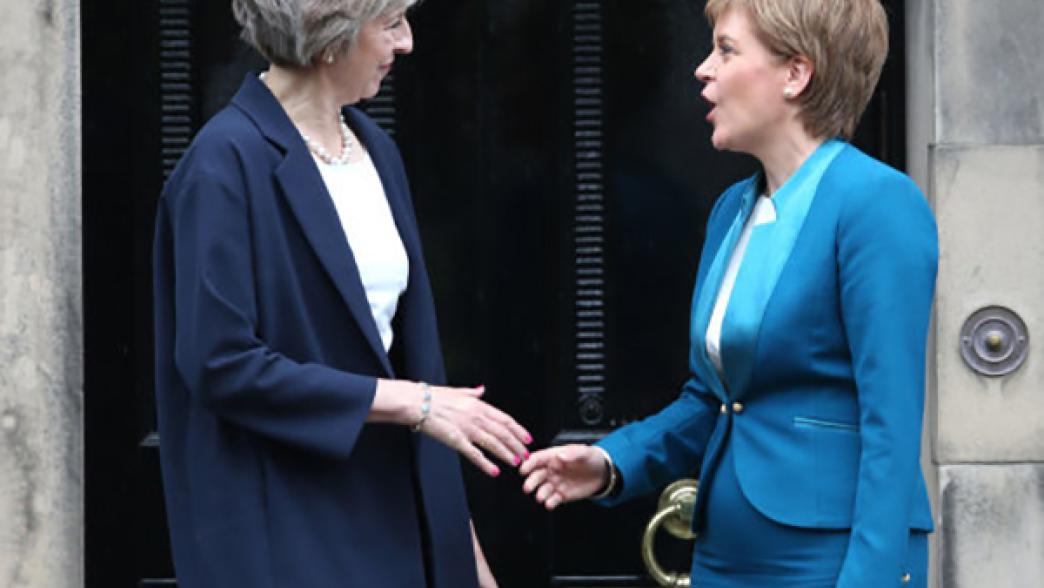
The Scottish Parliament will soon vote on whether to back the Scottish Government plan to request that Westminster devolves the power to hold a second referendum on independence. Akash Paun (naively) hopes this will mark the start of a positive dialogue between the UK and Scottish governments.
The SNP believes it has the mandate for a second referendum. Its 2016 manifesto argued that “Scotland being taken out of the EU against our will” would justify another vote on the Union. With Article 50 being invoked next week to commence Brexit, the Scottish Government calculates that now is the best time to pull the trigger on its own ejector seat.
Opponents in both Holyrood and Westminster meanwhile argue there is no public support for a second referendum and that 2014 settled the issue for a generation.
This vote is a mere symbolic exercise.
The battle lines are drawn and the debate in the Scottish Parliament will follow predictable lines. With the support of the pro-independence Greens, the SNP has a majority in Parliament (of 69 out of 129 seats), so it would be an enormous shock if Nicola Sturgeon’s motion on ‘Scotland’s Choice’ were defeated.
But the vote has no legal effect and it will at most strengthen the hand of Nicola Sturgeon as she continues her war of words with Theresa May, who has ruled out a referendum any time soon. On the other hand, the opposition of the Conservatives, Labour and Liberal Democrats to another indyref stands in marked contrast to 2014, when there was cross-party support. This may embolden the UK Government to stand firm.
What happens if there is a continuing standoff?
Under the terms of the Scotland Act 1998, which is effectively the domestic constitution of devolved Scotland, the Scottish Parliament may not pass legislation on anything that “relates to” a long list of “reserved matters”. This list, set out in Schedule 5 to the Act, includes “the union of the Kingdoms of Scotland and England”. This is generally interpreted as ruling out the possibility of the Scottish Parliament legislating to hold any sort of referendum on independence.
But there have been some suggestions that the Scottish Parliament could sidestep this constraint by holding a “non-binding” or purely “consultative” referendum, as Catalonia controversially did in 2014.
The legislation has never been tested so it would be for the Supreme Court to interpret how broadly to interpret the provisions in the Scotland Act. Legislation to authorise any vote that “relates to” independence might be struck down before being enacted. It could also be blocked at an earlier stage by the Scottish Parliament Presiding Officer (equivalent of Speaker).
It’s also important to note that the 2014 referendum was legally non-binding anyway, and would merely have provided a mandate to commence negotiations on the terms of separation (yes – just like the EU poll two years later). So it is unclear whether there is a meaningful distinction to be drawn here.
What happened in 2014?
The Scottish Government has made plain that its preferred route to a second referendum is a ‘section 30 order’, which is a way to devolve additional powers to Scotland by amending the reserved matters list in the Scotland Act. This was the mechanism by which the 2014 referendum was facilitated and it is Nicola Sturgeon’s preferred option again as it would put beyond doubt the legality of any referendum. The implication is that she is open to negotiation on the terms and timing of the poll – at least up to a point.
Last time around, the two governments concluded the ‘Edinburgh Agreement’ in 2012, by which the UK Government consented to the principle of an independence referendum on agreed conditions. The Agreement, and the section 30 order that followed, devolved to the Scottish Parliament the power to determine the precise timing and franchise for the vote, the latter being used to allow 16-17 year olds to participate.
The 2012 Agreement also specified that the referendum had to be held by the end of 2014, after which the power to hold any future such vote would revert to Westminster. The terms of the agreement also specified that there would be no ‘devo max’ third option on the ballot paper and that the referendum would be subject to Electoral Commission oversight.
In an important concluding section, the 2012 Agreement also committed the two governments “to continue to work together constructively in the light of the outcome, whatever it is.” Less than five years on, this sort of intergovernmental goodwill seems sadly lacking, and it seems unlikely that the vote will change this picture.
- Supporting document
- IfG_four nation_Brexit_briefing_v6.pdf (PDF, 420.66 KB)
- Topic
- Brexit Devolution